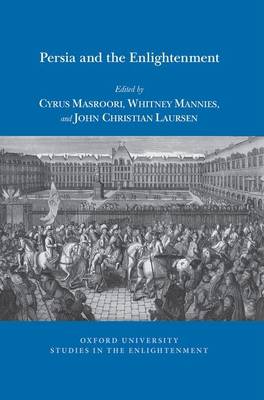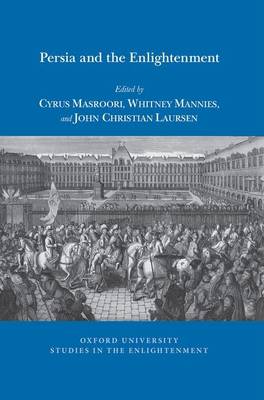
- Retrait gratuit dans votre magasin Club
- 7.000.000 titres dans notre catalogue
- Payer en toute sécurité
- Toujours un magasin près de chez vous
- Retrait gratuit dans votre magasin Club
- 7.000.0000 titres dans notre catalogue
- Payer en toute sécurité
- Toujours un magasin près de chez vous
Persia and the Enlightenment
134,45 €
+ 268 points
Description
Since the 5th century BCE Persia has played a significant part in representing the "Other" against which European identity has been constructed. What makes the case of Persia unique in this process of identity formation is the ambivalent attitude that Europe has shown in its imaginary about Persia. Persia is arguably the nation of "the Orient" most referred to in Early Modern European writings, frequently mentioned in various discourses of the Enlightenment including theology, literature, and political theory. What was the appeal of Persia to such a diverse intellectual population in Enlightenment Europe? How did intellectuals engage with the 'facts' about Persia? In what ways did utilizing Persia contribute to the development of modern European identities? In this volume, an international group of scholars with diverse academic backgrounds has tackled these and other questions related to the Enlightenment's engagement with Persia. In doing so, Persia and the Enlightenment questions reductionist assessments of Modern Europe's encounter with the Middle East, where a complex engagement is simplified to a confrontation between liberalism and Islam, or an exaggerated Orientalism. By carefully studying Persia in the Enlightenment narratives, this volume throws new light on the complexity of intercultural encounters and their impact on the shaping of collective identities.
Spécifications
Parties prenantes
- Editeur:
Contenu
- Nombre de pages :
- 368
- Langue:
- Anglais
- Collection :
- Tome:
- n° 2021
Caractéristiques
- EAN:
- 9781800348578
- Date de parution :
- 13-10-21
- Format:
- Livre broché
- Format numérique:
- Trade paperback (VS)
- Dimensions :
- 156 mm x 233 mm

Les avis
Nous publions uniquement les avis qui respectent les conditions requises. Consultez nos conditions pour les avis.





